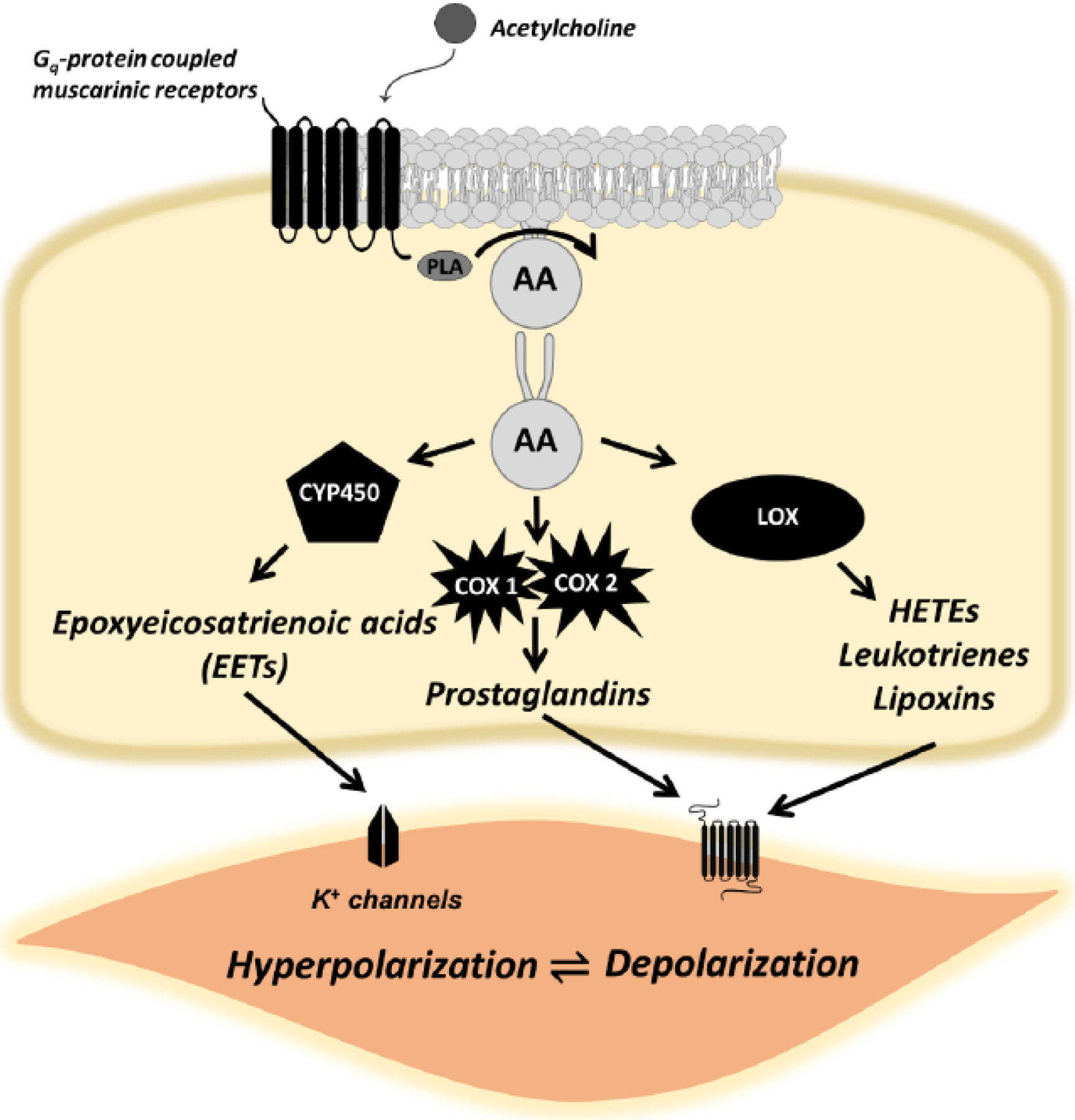Fig. (4).

The Janus face of acetylcholine and endothelium-dependent, arachidonic acid signaling. In physiological conditions, acetylcholine promotes the synthesis of vasodilating eicosanoids and other endothelium-derived hyperpolarizing factors (e.g., nitric oxide). However, in pathophysiological conditions such as hypertension, there is aberrant arachidonic acid signaling due to excessive inflammation. As a result, acetylcholine promotes the synthesis of vasoconstrictor metabolites, predominantly from cyclooxygenase and lipoxygenase that can act on vascular smooth muscle cells. As a result, acetylcholine causes endothelium-dependent contractile responses, as opposed to vasodilation.
